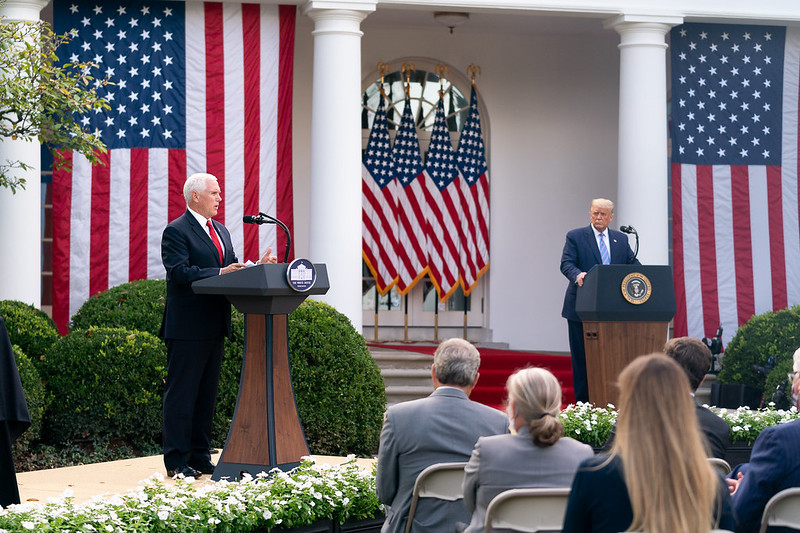
A survey about the COVID-19 response conducted by the Pew Research Center revealed a growing divide between Democrats and Republicans.
Members of the two parties differ greatly in their perceptions of how the government handled the crisis and also if the virus has been made into a bigger deal than it should be. In addition, factors such as where people get their political and election news altered opinions considerably. The survey of 9,220 U.S. adults was conducted Aug. 31-Sept. 7, 2020 as part of Pew Research Center's American News Pathways project. Notably, these results were before the debate and President Trump's COVID-19 hospitalization.
According to the survey, Republicans and Republican leaners are significantly more likely than Democrats and Democratic leaners to say the coronavirus outbreak in the U.S. has been "controlled as much it could have" and "has been made a bigger deal than it really is". Among the GOP, information sources had a large effect on answers. Those who rely on Fox News and/or talk radio as their only major sources among the eight options are much more likely than others to take the quoted positions.
Among those who lean Republican, 68% responded that the virus has been controlled as much as it could have while 66% believe that COVID-19 has been made a bigger deal than it really is. Among those who lean Democratic, only 11% responded that the virus has been controlled and only 15% said that it has been made a bigger deal than it is, showing the deep divide between parties on beliefs about the virus.
The survey also showed that Americans' attention to news about COVID-19 may be declining, as the amount of respondents closely following news about the pandemic fell from a high of 57% in late March to 35% who said the same in September. The data also shows that attention has fallen much more among Republicans. In March, the difference in percent respondents who were "closely following" COVID-19 news was only 5%. By September, that difference between Dem/Lean Dem and Rep/Lean Rep respondents had increased to 18% - with 44% of Democrats following closely and only 26% of Republicans doing the same. Overall, attention to news about the pandemic remains high. The latest survey showed that 82% of respondents said they are following coronavirus news either "very closely" (35%) or "fairly closely" (46%). Since late March there has only been a small decrease; at that point in the pandemic 92% of respondents were following very closely (57%) or fairly closely (35%). However, many respondents (31%) also say they try to tune out news about the coronavirus outbreak, with Republicans (43%) being more than twice as likely as Democrats (20%) to tune out news.
Further questions were asked about how closely they were following topics related to the COVID-19 pandemic, with notable partisan gaps on seven out of eight topics asked about in the recent survey. The only topic for which there is no partisan gap is the outbreak's economic impact.
The survey additionally revealed partisan differences on topics such as young people's susceptibility to being infected with the coronavirus and the difficulty of determining facts related to the pandemic in September compared to in the first few weeks of the pandemic. Republicans were more likely to say it is getting harder to determine facts while Democratic respondents were more likely to say it was getting easier to determine. Additionally, Republican subjects were far more likely to respond that young people are far less susceptible to contracting the coronavirus while most Democratic subjects said that people under 18 are about as susceptible to contracting the virus as adults are.
The vast differences in opinions between the parties may in part reflect ideological contrasts, but it is clear that Republicans and Democrats differ in how they seek out factual information about the pandemic as well. The fact that the divide is growing, too, is worrisome for the state of scientific discourse in the U.S.


















